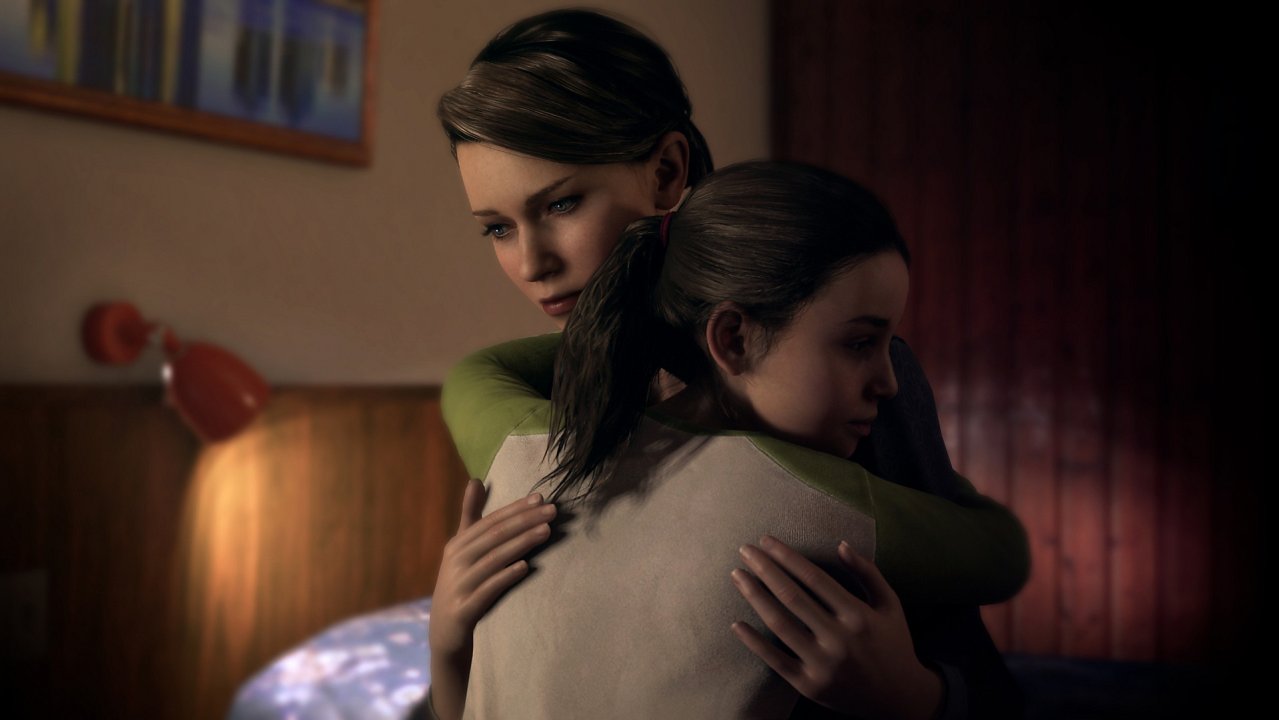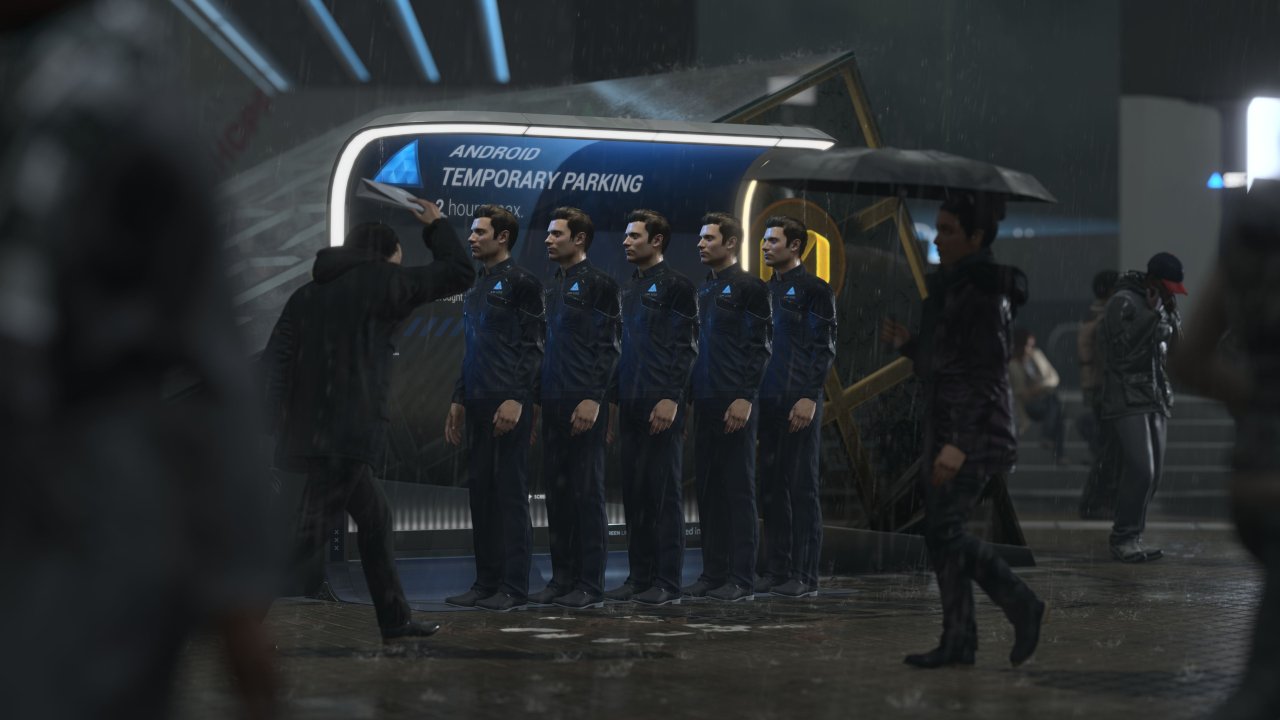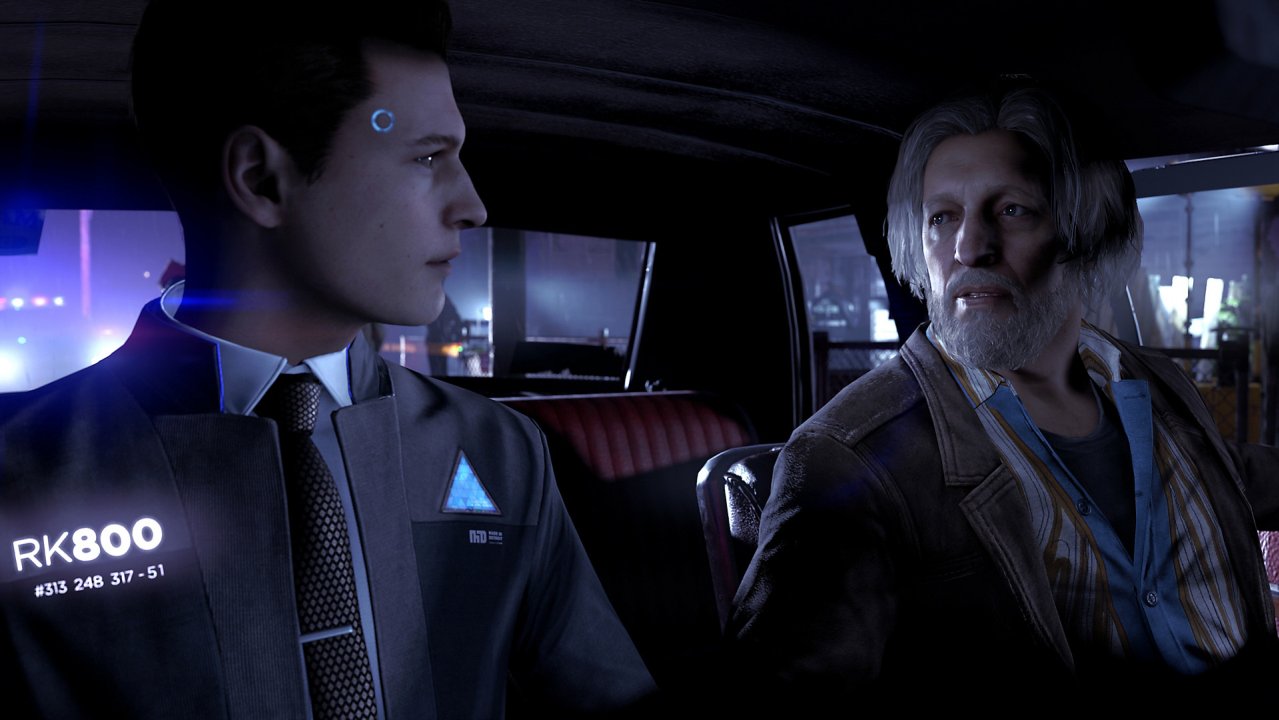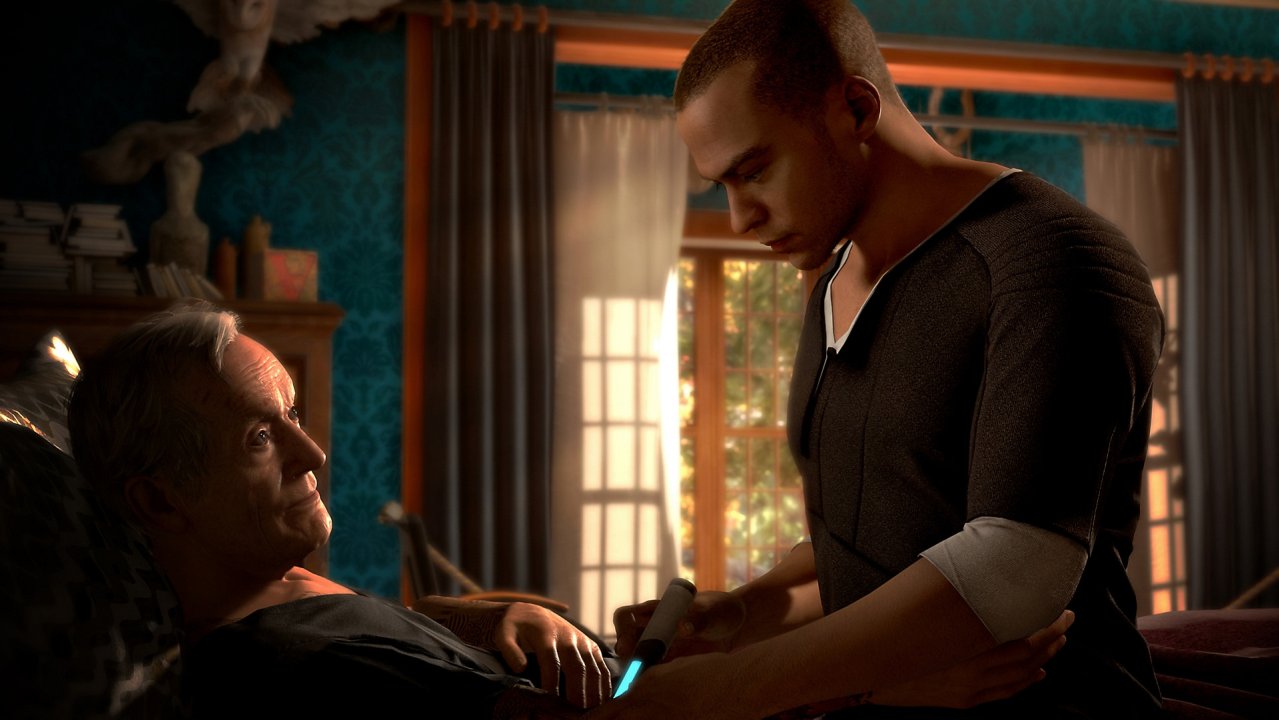Detroit: Become Human Review
You may have seen a Sci-Fi world like this before, but you've never had so much control
While companies like Telltale Games got their breakthrough and ran away with it, the team at Quantic Dream have taken a different approach to narrative driven games. Following their successes with Fahrenheit (Indigo Prophecy) and Heavy Rain, the company has solidified their status as skilled craftsmen of the dramatic, high production quality cinematic experiences. The developers take their time to craft an engaging and original narrative with each title, and so it takes them a few years between entries. Their PS3 title Beyond: Two Souls carried many of the expected qualities, but the final product didn't quite manage to be as great as their previous works in the eyes of fans. With the PS4 now well into its lifecycle, the studio is back with their latest effort, Detroit: Become Human. And as you might have guessed, this is a cinematic adventure where player choice is at the heart of the experience.

Detroit follows the story of three androids, caught up in a series of events that lead them down dangerous and unexpected paths. The year is 2038, and humanity has adopted the android services as part of everyday life. These androids are obedient and behave just like humans, having passed the Turing test a few years ago thanks to progress made by CyberLife corporation. People use them for everything: personal shoppers, caretakers, construction workers, guards, and more. The androids are treated as objects, and are most commonly referred to as an "it", even by each other. Androids must use separate bus compartments, cannot enter certain businesses, and endure protests from humans who believe they lost jobs to the robots. This sort of dystopian future Sci-Fi is certainly not new in the entertainment industry, but Detroit executes it well and sets up an immersive world. The game even manages to sneak in a tiny bit of horror, which works surprisingly well.
Players assume control of three androids, who lead their own separate existences. Two of these playable characters encounter events that tip them over the edge and allow them to break free of their programming, and they become so-called Deviants. Deviants are androids that are considered defective and a threat to humans because they have developed an ability to think freely and have started to exhibit resistance to their often abusive owners. Kara is an assistant model android that is purchased by an aggressive man to perform household chores. One day she witnesses an event that forces her to become a Deviant and escape with a young girl in order to protect her. Markus is a similar model to Kara, who has been serving his ill elderly client and has developed quite a bond with him. However after an altercation has him wrongly accused and sent to the dump, he must survive and also become a Deviant, realizing that androids are a new form of intelligent species, and must defend their right to exist alongside humans. Lastly, Connor is a special model of police android sent by CyberLife to the Detroit PD in order to assist with the Deviant problem and put an end to it.
Each of the three storylines are engaging in their own ways. Kara's main concern is protection of the young girl and their decision to escape the country and flee across the border to Canada. Her story is meant to be more personal and focuses on the relationship with the girl, and their need to survive a world that's quickly becoming engulfed in a civil conflict. Markus, meanwhile, sets out to meet other Deviants and formulate a plan on how to approach humans and present the android demands to them - do you play it aggressively or passively, do you begin a dialog or just go for guerilla tactics. He becomes a leader of this resistance and carries the larger, more bombastic and passion-driven storyline. And with Connor, perhaps the most interesting and conflicted of the three, you are caught between both sides as well as CyberLife themselves. Connor offers the purposeful and calculated take to the events of the game.
Player choices are obviously a huge part of Detroit, and the way that everything is interconnected is certainly impressive. The way that you handle the revolution with Markus will have an impact on how the characters respond to Kara; the results of Connor's investigations can lead to new outcomes for both humans and androids. This is likely the biggest effort thus far from Quantic Dream, as far as the breadth of the story choices is concerned. The replay value is quite high as scenes often have multiple outcomes, and the consequences can be either immediate or far reaching. In the second half of the adventure, your decisions really start to snowball and events can play out in a wide variety of ways. You're often faced with a timer to make your choices, but unlike Telltale titles you get to hear the full length of dialog before being forced to answer. The game features a number of memorable and tense scenes with choices that are difficult to make. As Kara, you will need to decide how far you're willing to go and who/what you're willing to sacrifice to succeed. As Markus, you must decide on being a peaceful protester or a violent revolutionary. And most intriguingly, as Connor, will you put yourself in his shoes as an android or as a person, with a lot of the challenge coming from your opinion if androids are indeed capable of having a soul and feeling alive.

To add further urgency, that's comparable to the dialog choices, sometimes players will be faced with a real timer of anywhere from a minute to 15 minutes, and in that time you'll have to make a series of decisions and actions, trying to remain calm under the pressure. It adds an interesting twist to the gameplay, and the timers are always generous enough that you're not going to be frustrated. It's similar to the scenes in Heavy Rain where players must complete actions before an event occurs, but this time with an actual visible timer.
Although the choices are tough, the game definitely tries to steer you into siding with the android revolution. The sheer abuse that you witness is never off-set by anything positive in how the general population treats the robots. They have no rights, no support, and little sympathy, so players are bound to feel sorry for their cause. After becoming Deviants, the androids also become completely human-like, in both their speech, behavior, and mannerisms, so it's easy to forget you're dealing with robots. It is similar conceptually to the Synths in Fallout 4. Their human designs are obviously intentional, but it would have been nice if the game kept more constant reminders that these are in fact not humans. The only hint you have is glowing circles in their temple, but these are removed (not for all Deviants, for some reason), and so they become completely indistinguishable from humans.
And so while Detroit once again proves that Quantic Dream are quite good at creating emotional narrative adventures with high production values, it isn't without a few faults that prevent it from reaching the heights of Heavy Rain. Detroit largely skirts by any details or larger philosophical questions - we don't really learn about how the sale of androids are regulated, what happens after owners die/if they can be sold, or how their role in human society has developed over time. Nor do we really get a sense of how CyberLife is/is not able to control or communicate with its own machines. But more importantly, we don't get all the answers to some of the major mysteries by the end of the game, in addition to lack of clarify with the abovementioned temple implants. Even having seen most of the endings across all scenes, there are still lingering questions. They aren't plot holes such as those in Heavy Rain, but it's as if the game simply forgets about some aspects of the story that seemed quite important at the start. Perhaps it's intentional to leave some things to mystery, but it doesn't feel satisfying as you start to reflect back on the story. And with the finale - the game just ends. Credits roll right away after all of the storylines reach their immediate end, without giving players a few closing moments to let things sink in. Apart from a brief bit on Connor, there are no cutscenes that take place "a few days/weeks later" to give some closure on the characters and their lives, even if they all survive. The ending seems rather abrupt because of this.
Some of the choices feature rather dubious outcomes as well, and it becomes quite evident thanks to the game's comprehensive flowchart feature. The chart lays out every single possible outcome and the choices that lead there - though of course it doesn't say which choices lead to new paths. These flowcharts are a great tool for subsequent replays to see what could have been - but it is a double edged sword, as the game makes an unwelcome design decision and shows you the flowchart after every chapter. It becomes a spoiler of sorts - you can see exactly what choices led to an outcome, and the desire to just "quickly re-do this" grows very strong. For a game that asks you to live with your choices, it certainly makes it very easy to cheat, and furthermore promotes this cheating by forcefully showing you the chart. Since the chapters are often short, under 20 minutes long, the desire to abuse the system is quite strong. Sure, games from Telltale also show you the key choices, but those are revealed after a couple of hours of gameplay, and not to this level of detail. You can try to just look away of course, but it's sad to see the game sabotage its own sense of mystery for the sake of showing off how many possible branches there are. Another needless explicit hint appears when characters change their relationship towards you, as the game shows exactly how they feel. Again, it could have been handled less intrusively, just by showing that the conversation was important, rather than stating outright that this person is now your friend/enemy.

Besides going through all the possible outcomes for the sake of discovering more details about the story and seeing what could have been, doing so also earns you some points. These points can then be spent in the main menu's extras section, which contain some bonus videos, character models, art, and soundtracks. The only other optional content the game features are the occasional magazines that you can find, which have a few paragraphs of text describing current events in the game world and the status of androids.
As such, Detroit manages to deliver a very engaging and deeply personal story, with plenty of player choice, tense and chilling scenes, and tons of replay value, even though not all of it works perfectly. So how does it play? Well, just about the same as every other Quantic Dream effort. From a third person perspective, players will explore a series of largely linear levels, some of which are quite small and cramped. The camera follows a bit too close and can feel awkwardly low, however there is thankfully a button to switch to another alternate camera angle. Using the "mind palace" skill, you can scan the environment for any intractable objects. You'll often need to use the analog stick to perform rotating motions or press/hold button combinations. With Markus and Kara, the game offers the trademark Quantic Dream slow-burn start with the characters performing some mundane tasks in order to get familiar with the controls and get immersed in the world; it works well enough. With Connor, you'll be investigating crime scenes which involves collecting clues and reconstructing events, perhaps comparable to Norman Jayden from Heavy Rain. There's no challenge here, as all you need to do is scan things and occasionally choose the right actions in a timeline. As Connor you'll also enjoy a few unique gameplay mechanics that are excellently integrated into the Sci-Fi setting, though to say anything more would be to spoil them. Other characters also occasionally get to use the timeline as a way to plan an action and find the sequence of events that will be successful.
When the action picks up, quick time events take center stage. The same sort of controls apply here - timed button presses and analog stick movements. While this sort approach still works, Detroit's QTE sequences are a bit more frustrating at times than in previous QD games. The UI prompts still appear all over the screen and they have a rather limited window to be successful, which is fine, but the issue is that the icons themselves shake a hell of a lot. Most of your failed action scenes will be not the result of poor reaction time, but rather the extra time it takes to focus on and realize what button you need to press. QTE failures are mostly forgiving for the player character involved in the action, but they can have big impact on others involved. If you find it too frustrating, the game does have a Casual mode so that you can focus purely on the story.
The presentation quality is very good throughout. Though the game doesn't push the sheer technical quality of the PS4 like God of War or Uncharted 4, it's still a very nice looking title with obvious focus on animations and character faces. The in-game characters are very well voiced and lip-synced, with plenty of camera closeups showcasing emotional reactions. It certainly helps that a lot of the cast have TV/film experience, from the leads to the side characters. The choreography of the action is quite good as well, even if it gets a bit hectic at times, and the whole production will definitely remind you of a big blockbuster film. Soundtrack quality is on par with the on-screen action, and presents three distinct audio themes for each of the characters. The game utilizes the DualShock 4 controller as much as it can - the controller occasionally emits sound from its speaker, and you need to sometimes use motion controls to perform actions as well as use the touch pad to tap/swipe.

There are just a few minor hiccups. For one, the game uses a closeup of an android in the main menu, which is definitely immersive, as she will comment on your play sessions and give the general feeling of unease. The downside here is that she is clearly not as well-animated or lip-synced as the in-game characters. Sure, it can be argued that she does not need to be, as it's just a menu, but first impressions matter. On the base PS4, while the game world itself and the characters look nice and detailed, there are definite cases of visuals becoming blurry in the nearby distance. There are also scenes where framerate drops heavily, though it's oddly not related to the amount of action or effects on screen, and it occurs mostly in the first half of the game, so perhaps it will be ironed out post launch.
Detroit: Become Human proves once again that Quantic Dream are quite good at what they do. They have succeeded in creating yet another immersive and heavily choice-driven interactive drama with high production values and an engaging narrative. Although they are still chasing the heights of Heavy Rain, this new title manages to beat out Beyond: Two Souls by providing a more interesting setting and a wide breadth of possibilities. The game is let down somewhat by a few story inconsistencies and unfortunate design decisions, but on the whole it looks and performs well, and shouldn't be missed by fans of this sort of interactive drama and approach to storytelling.
A digital code was provided by the publisher for the purposes of this review.
 Comments
Comments


















